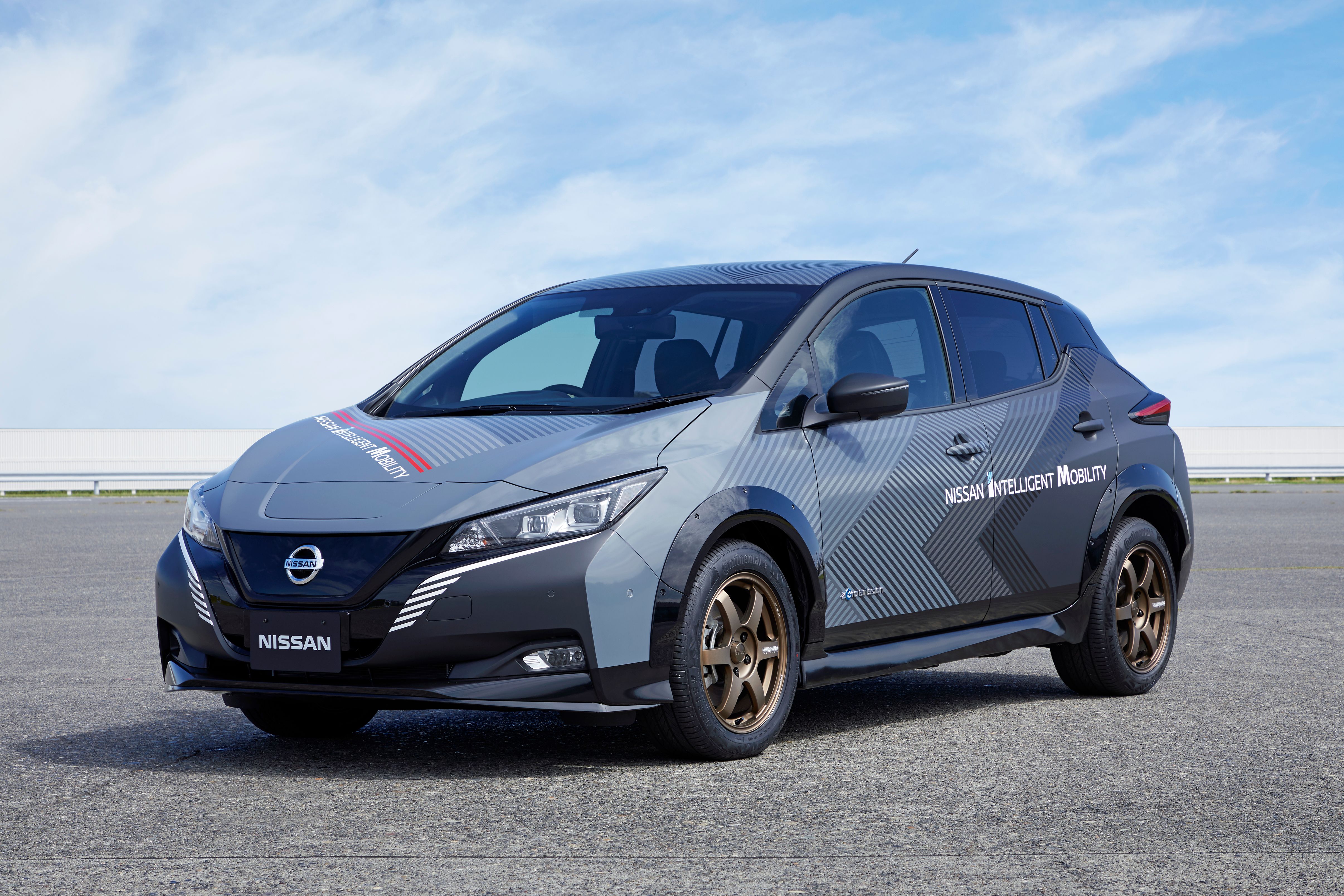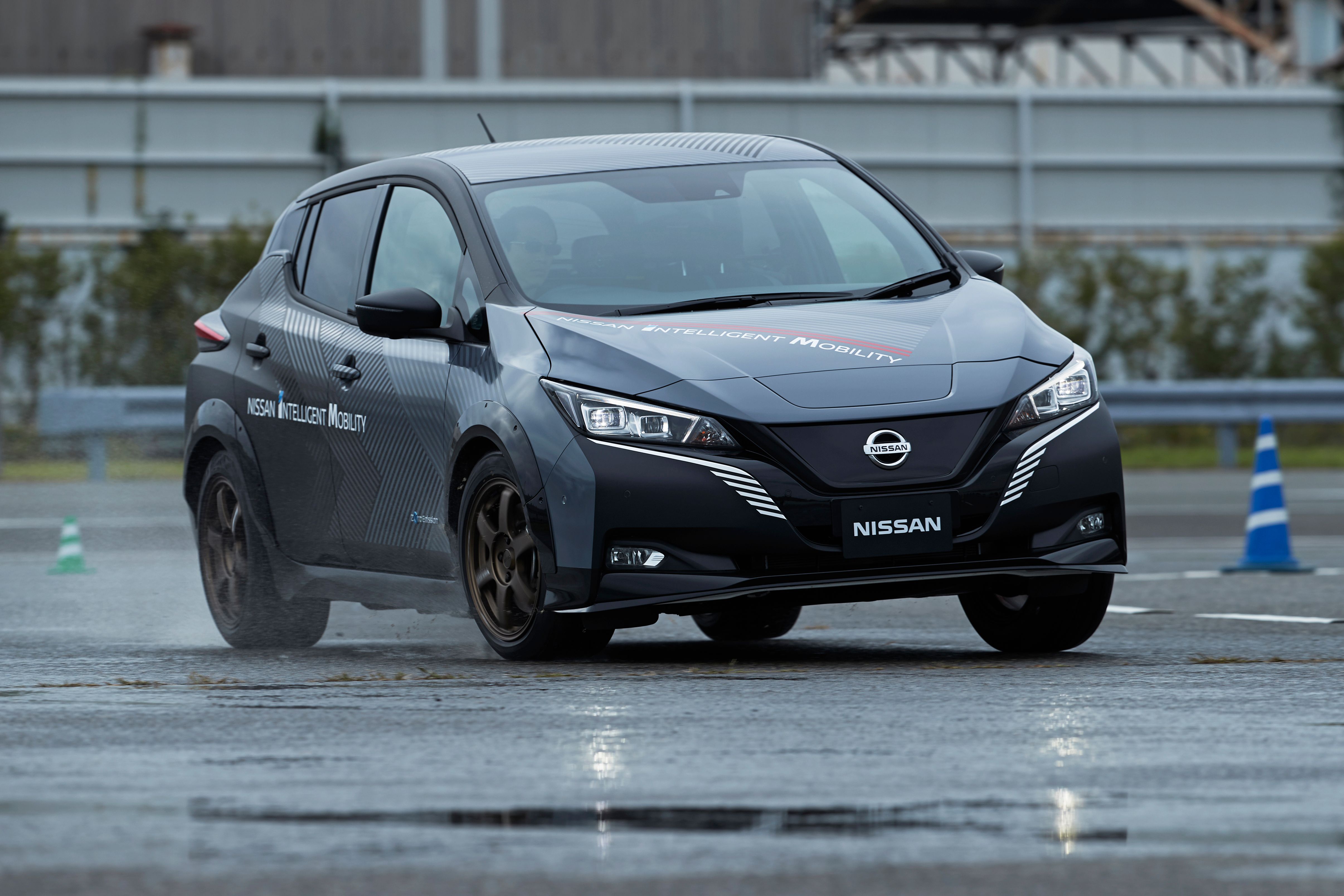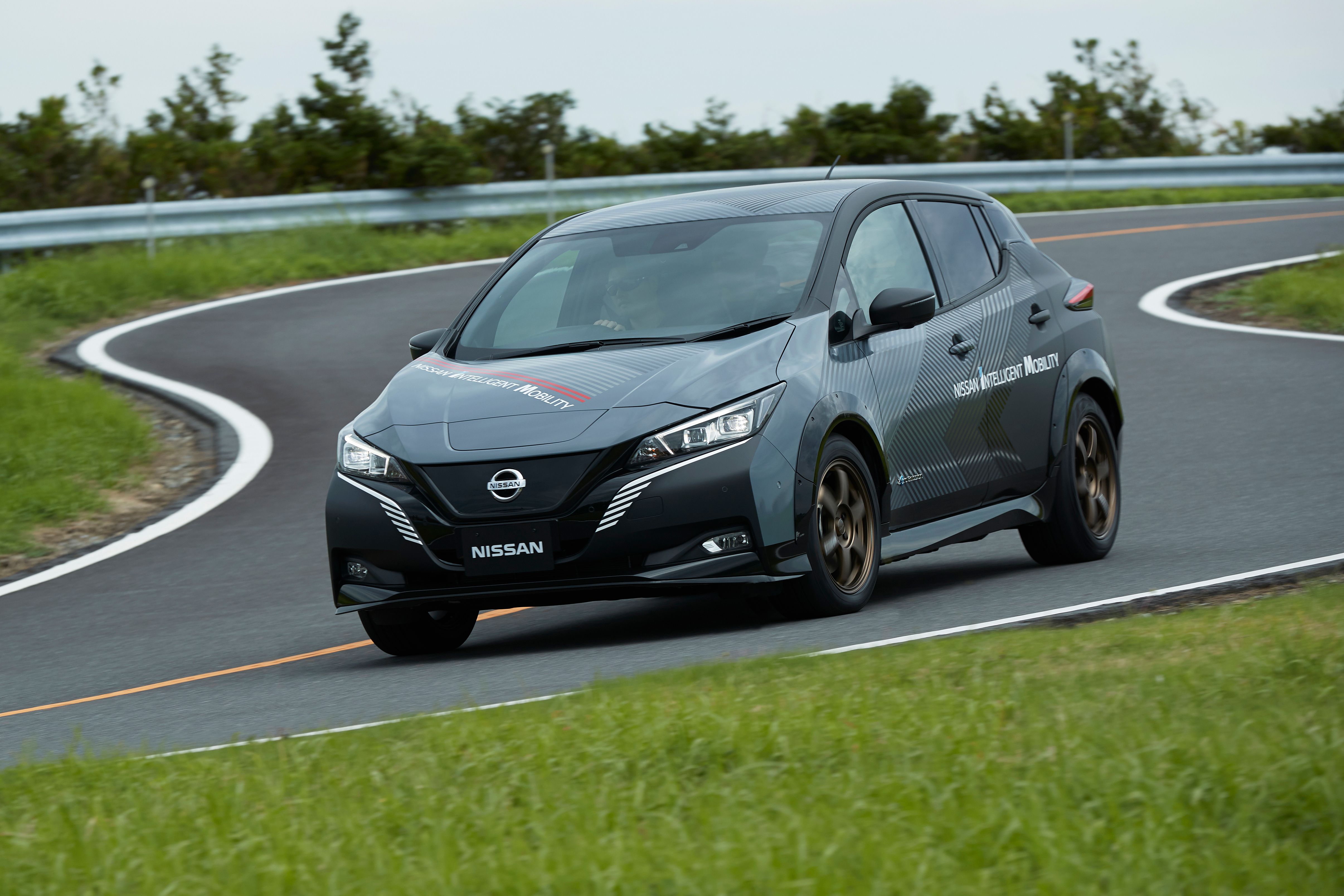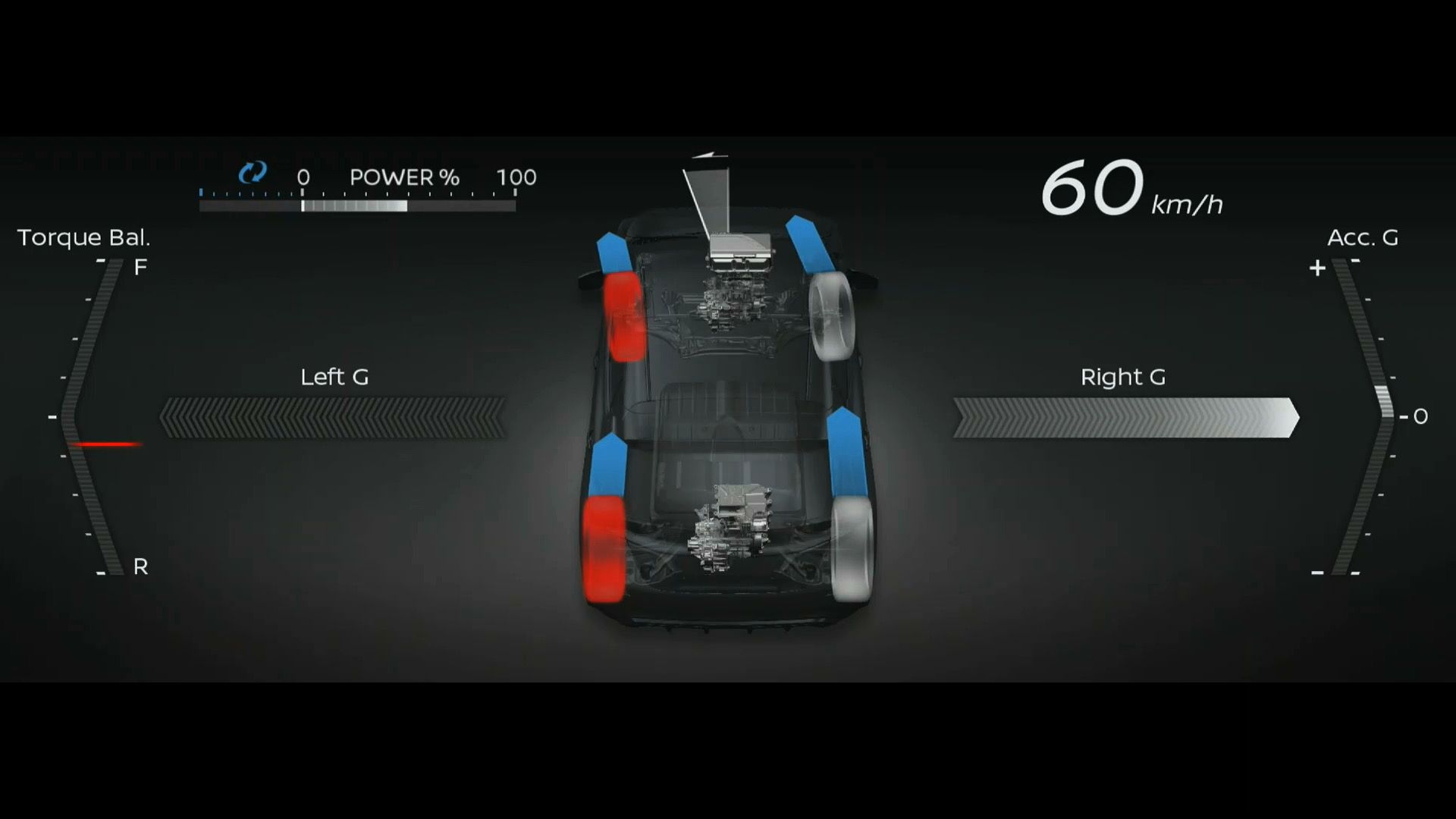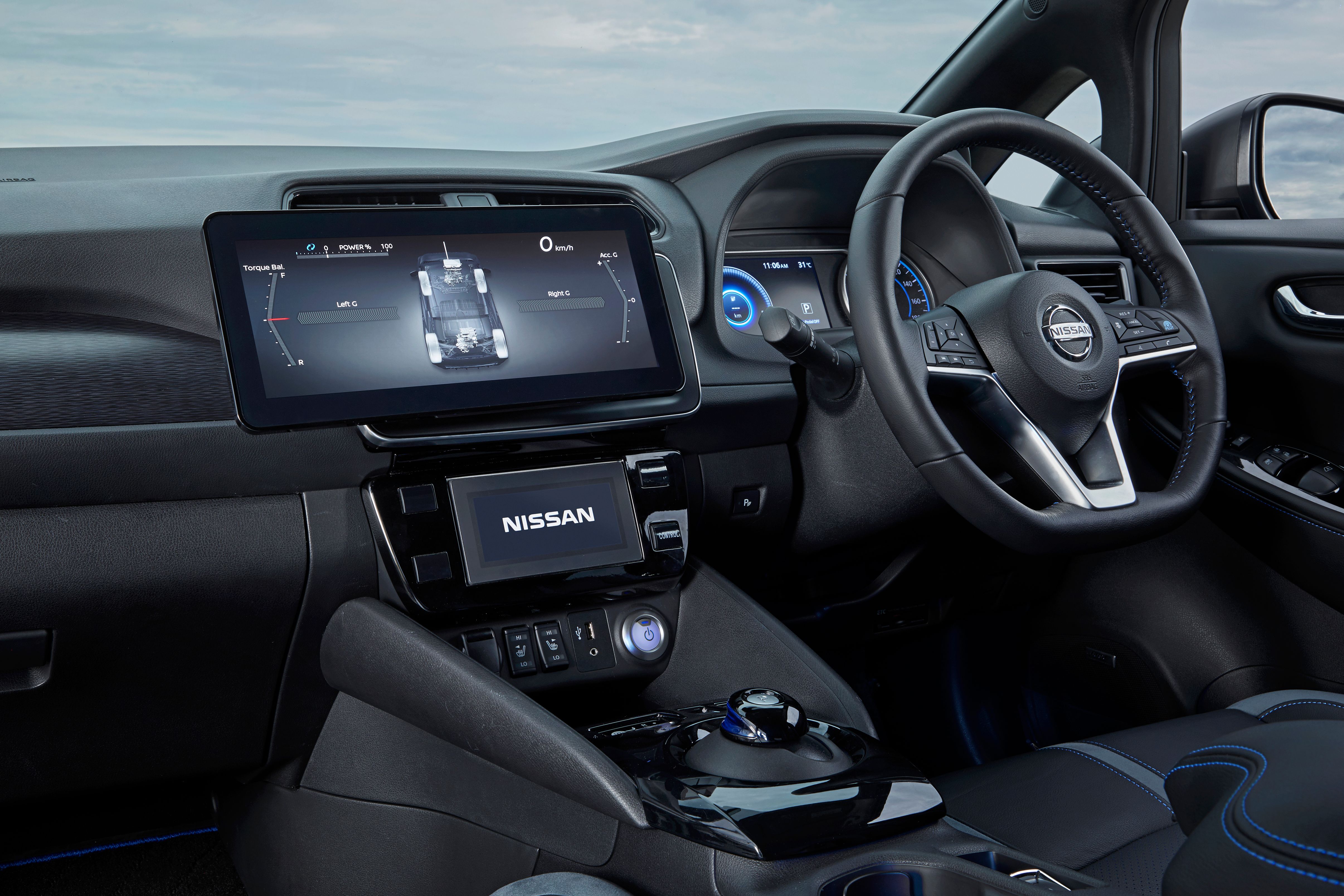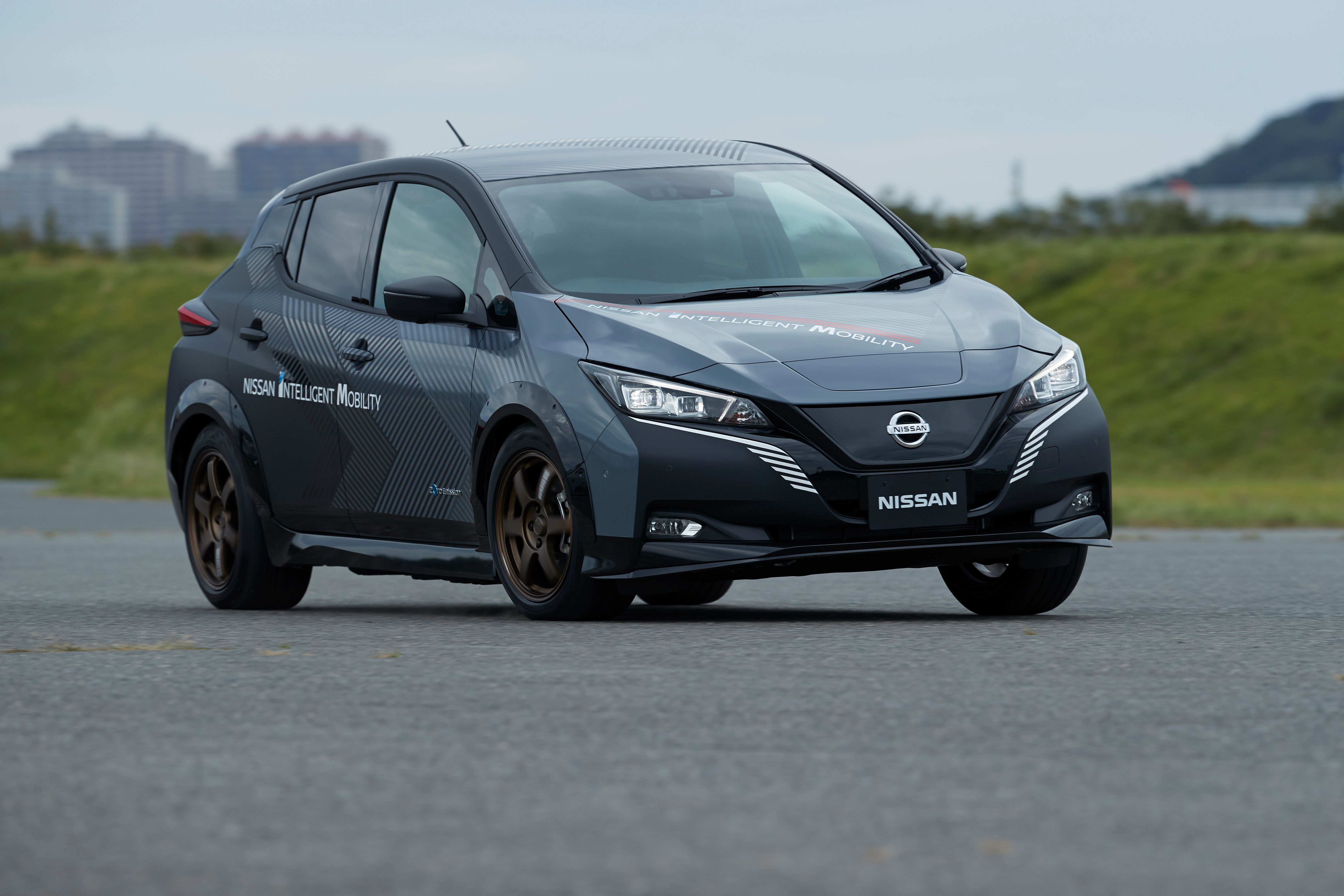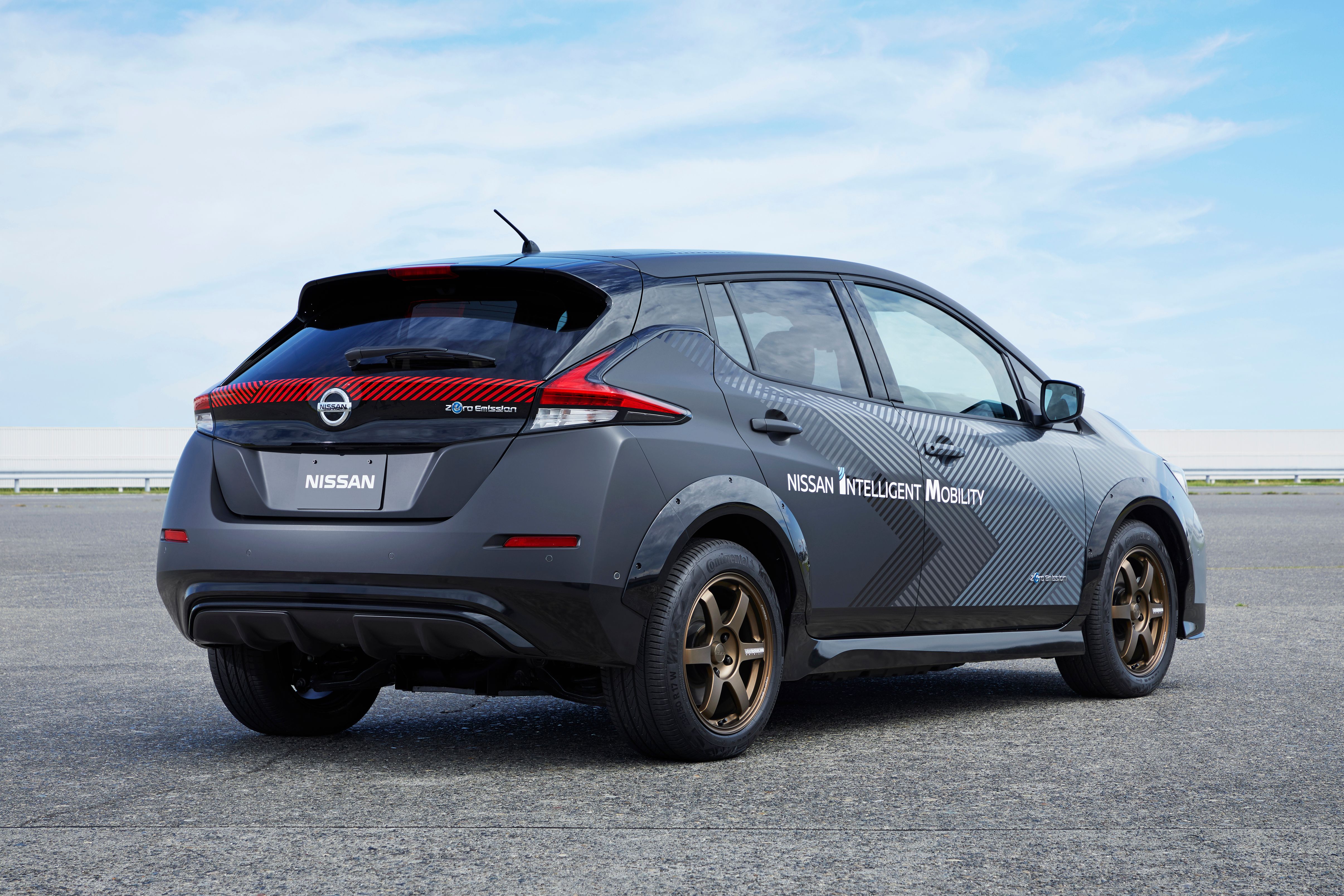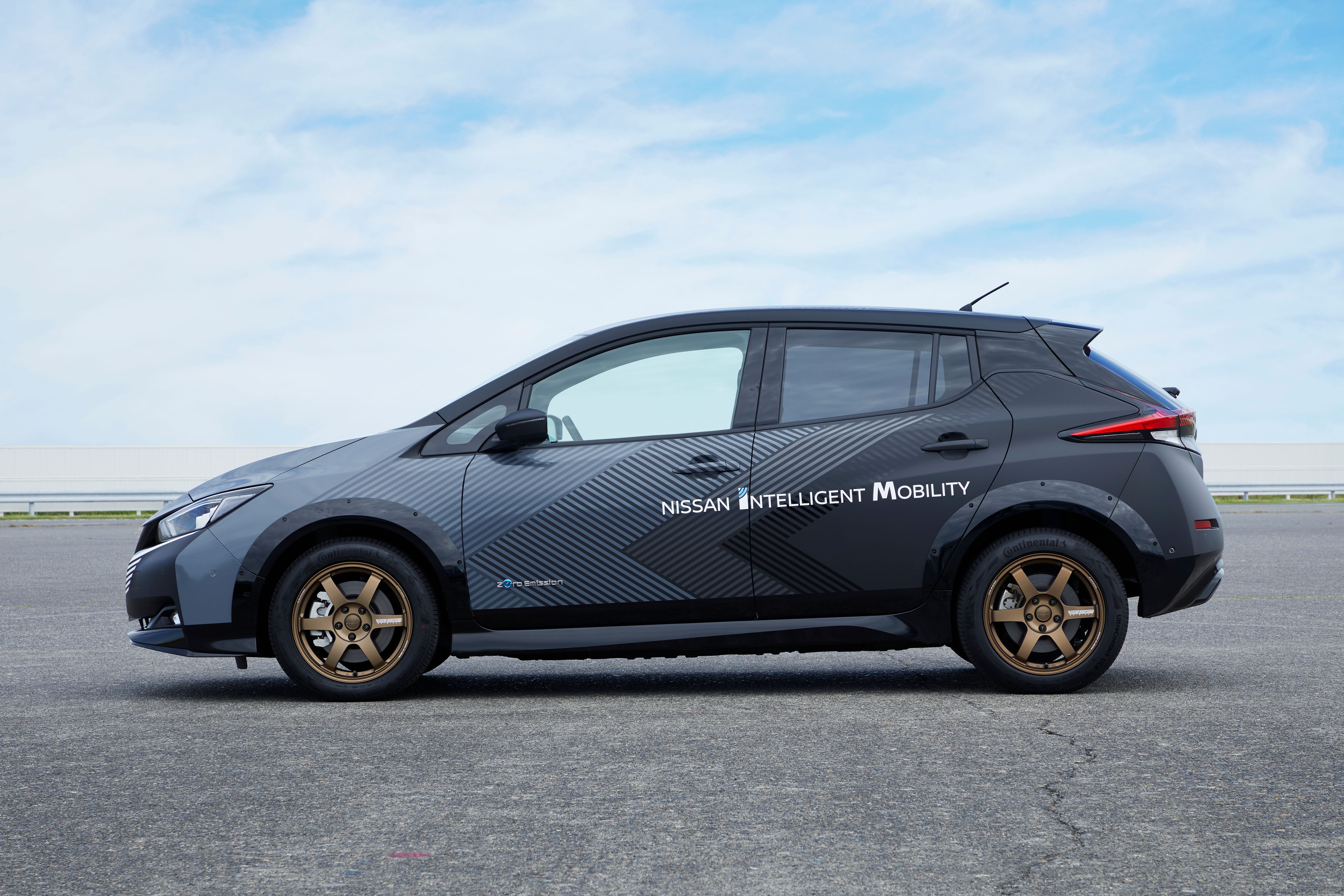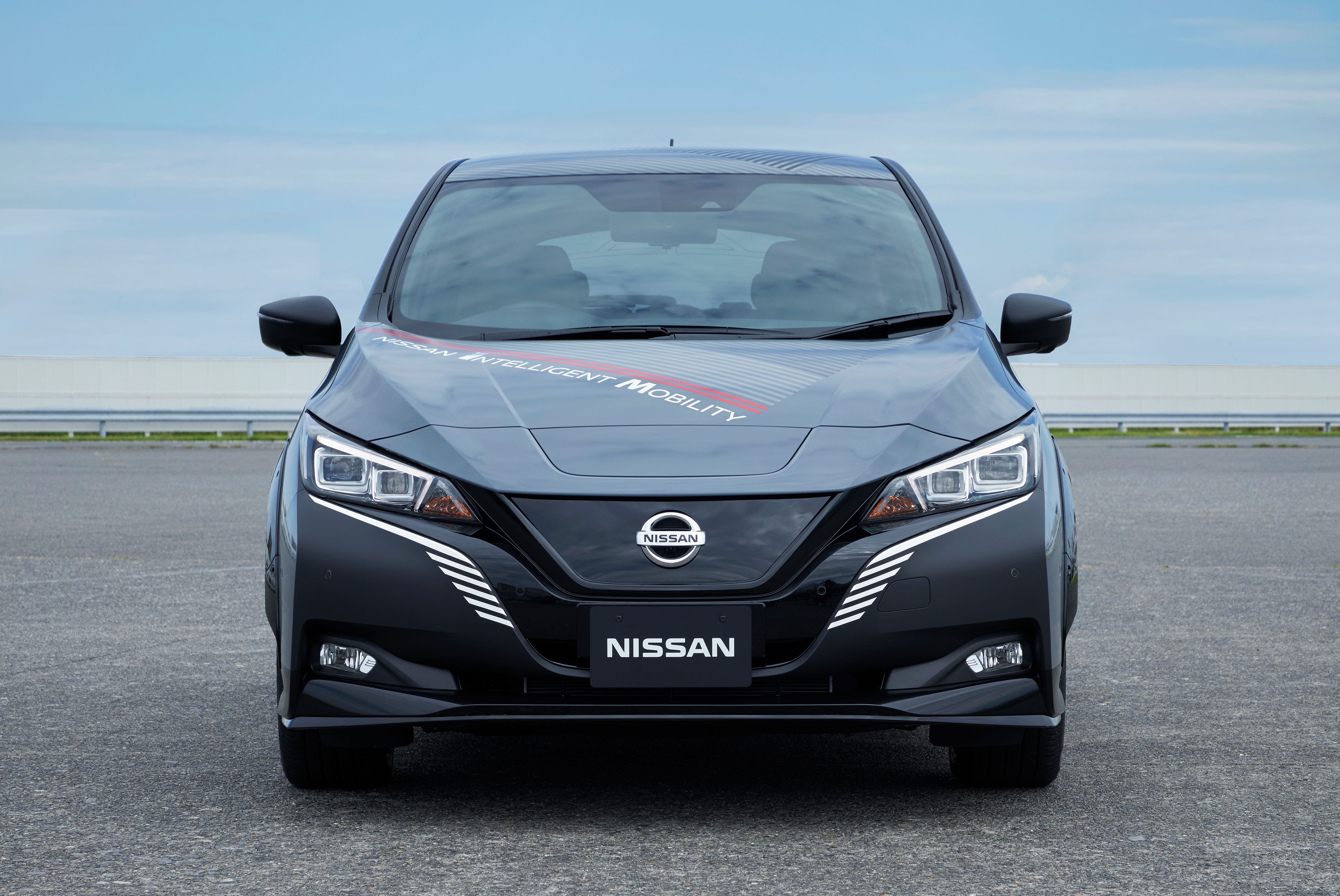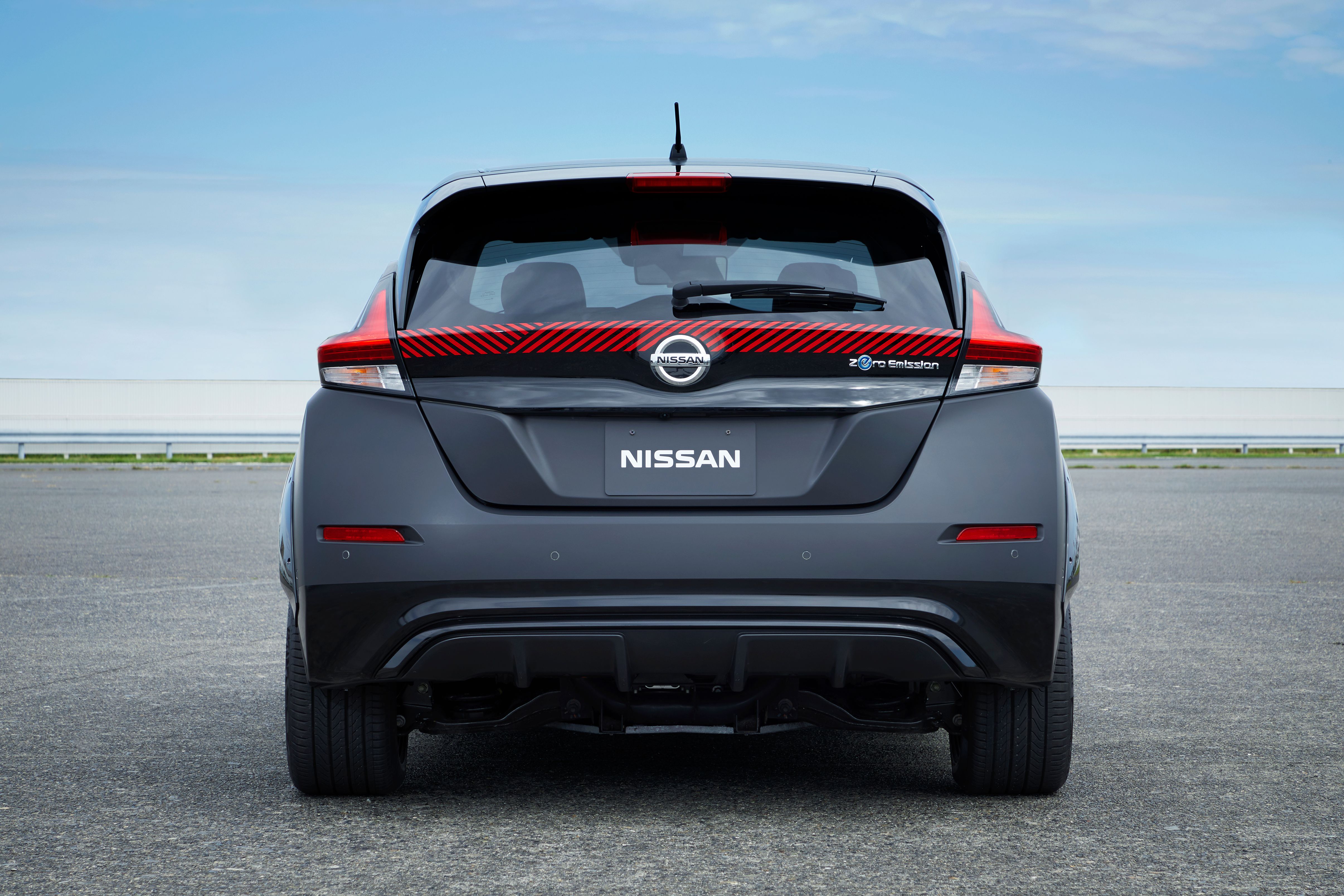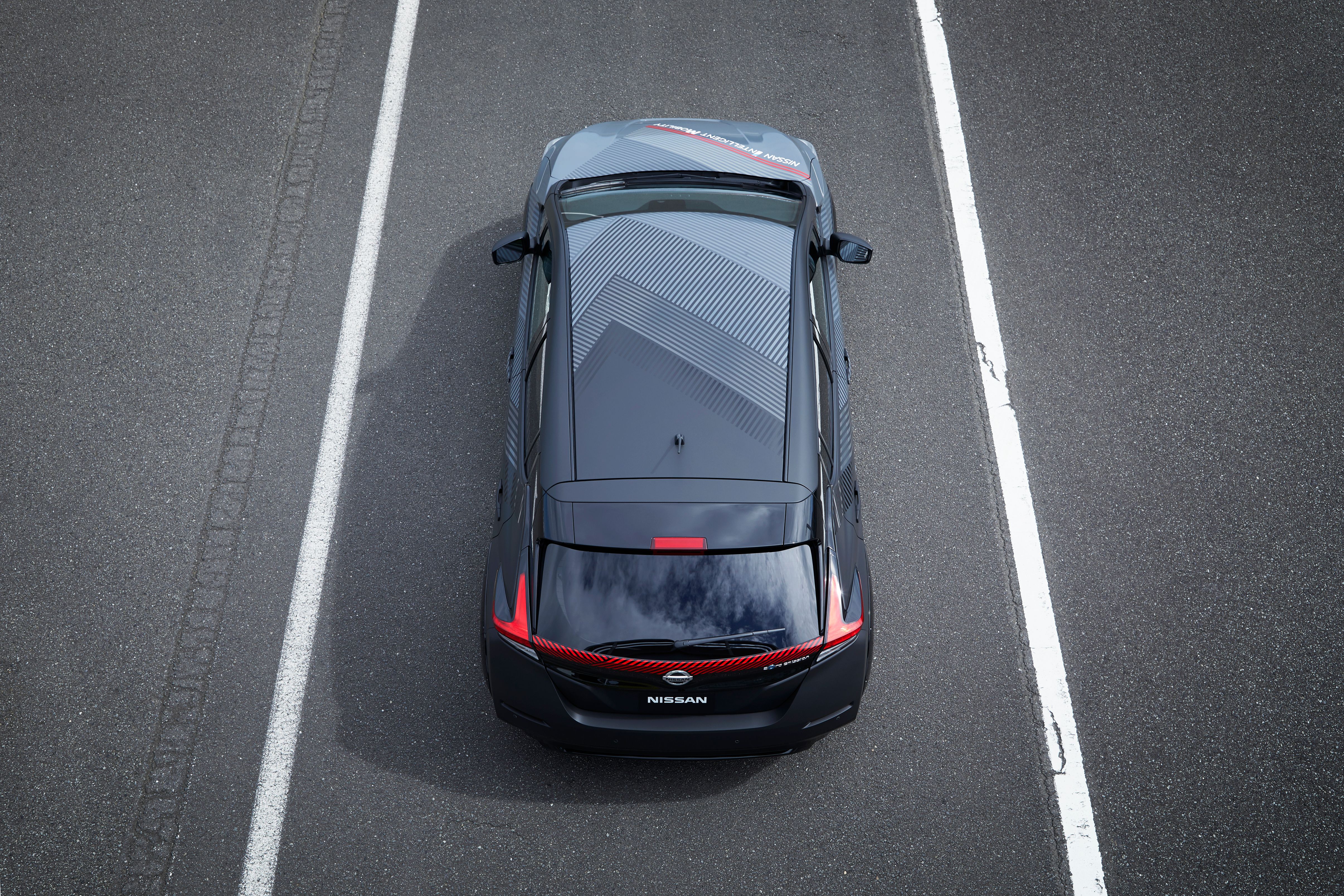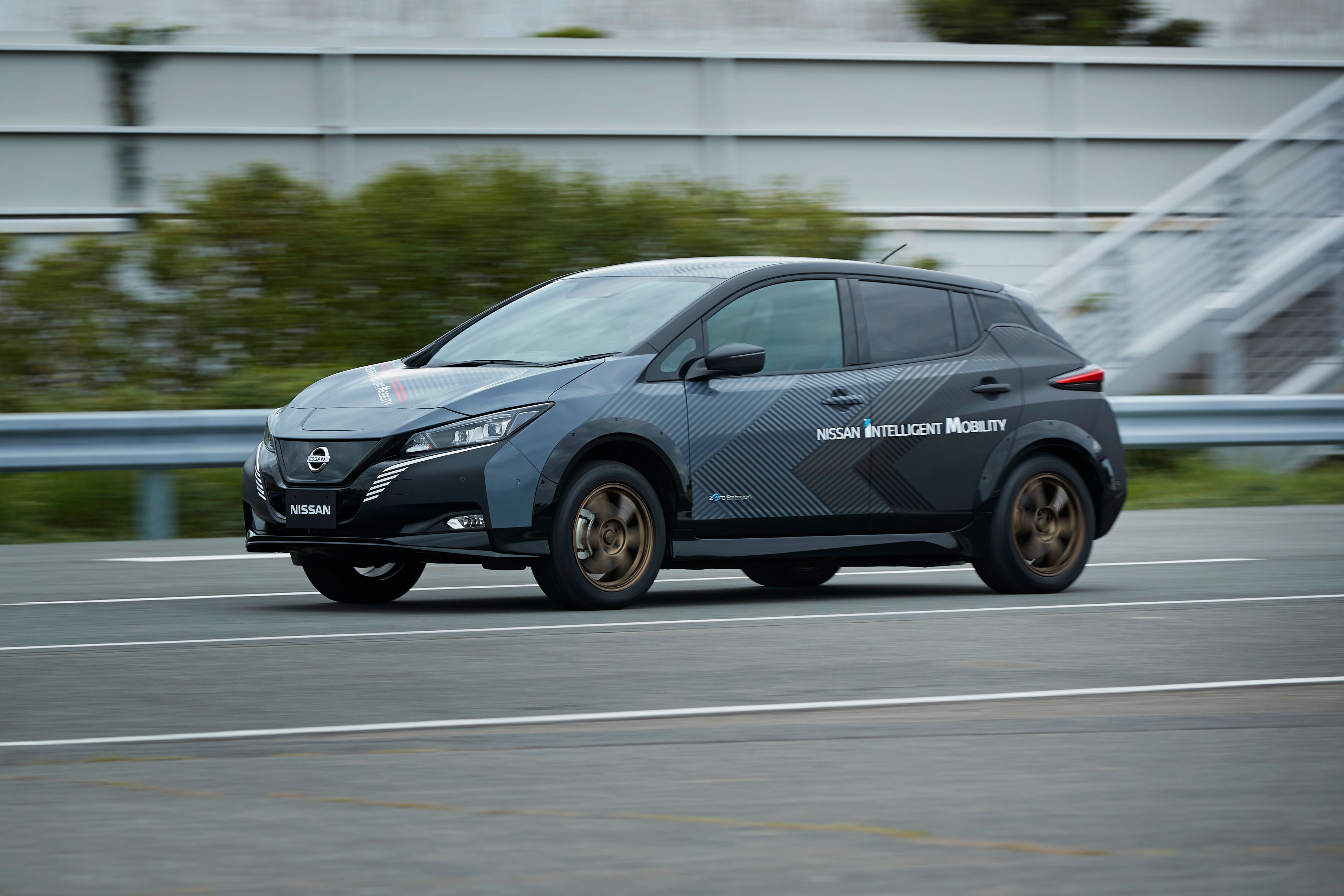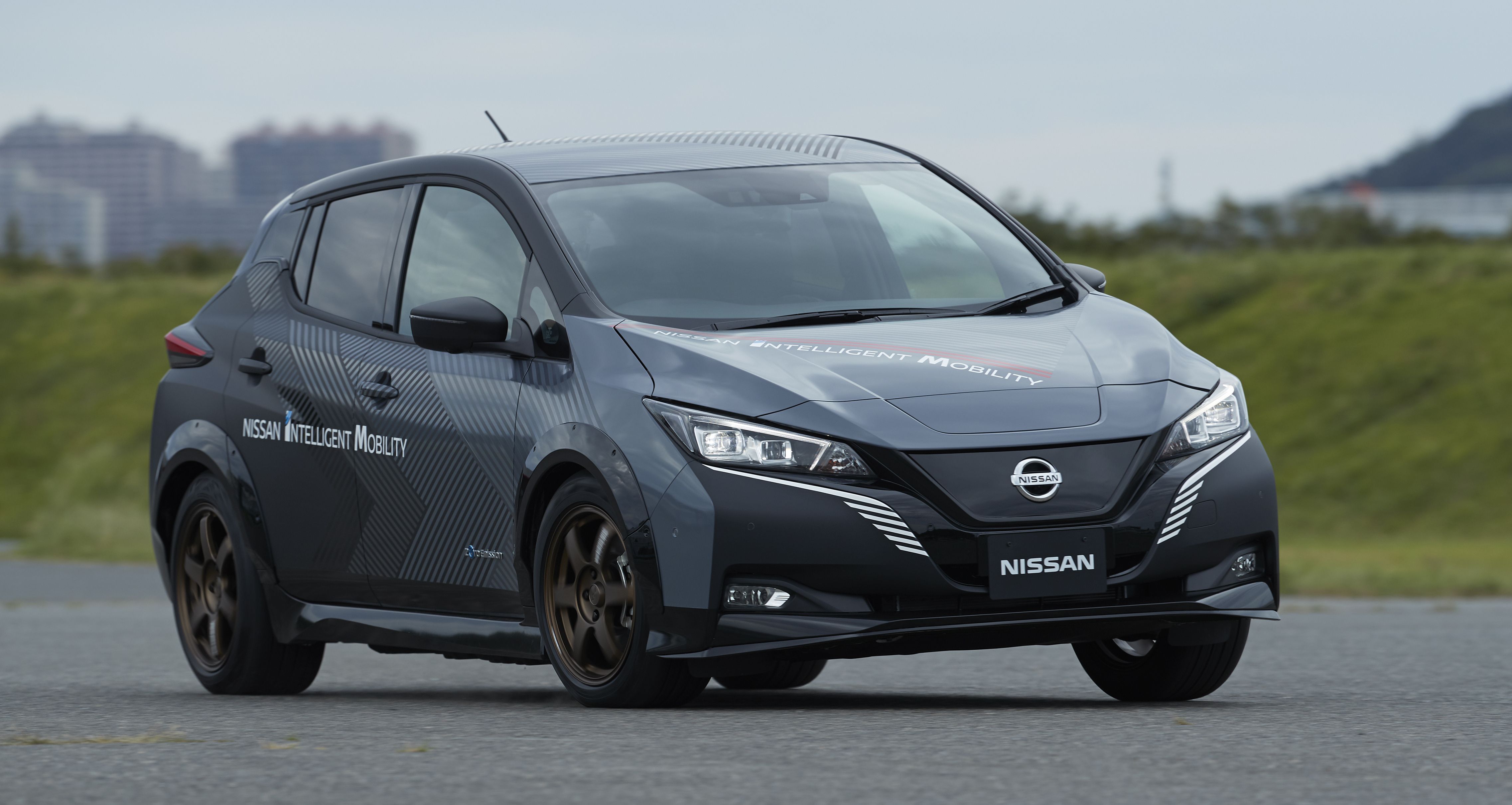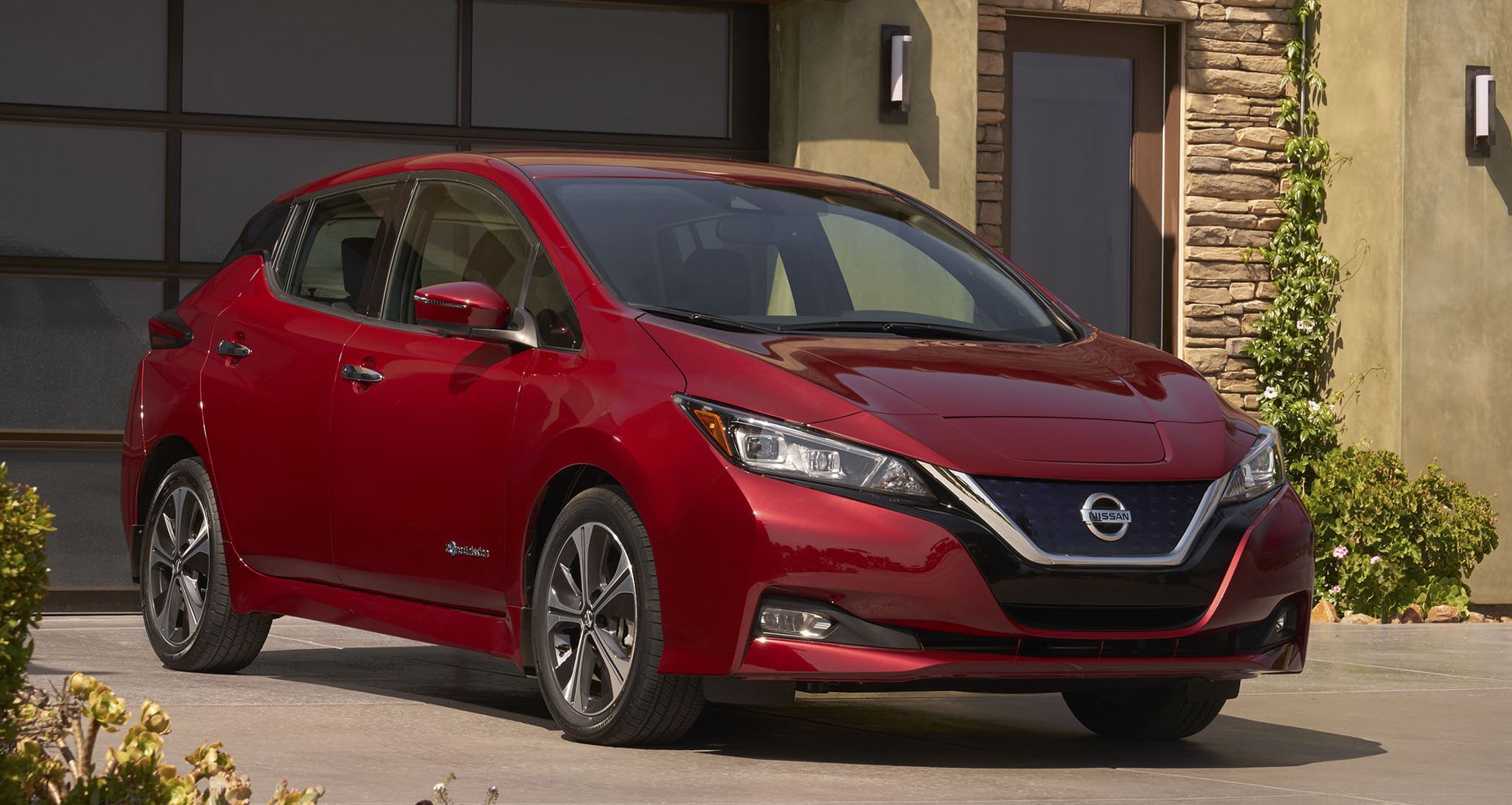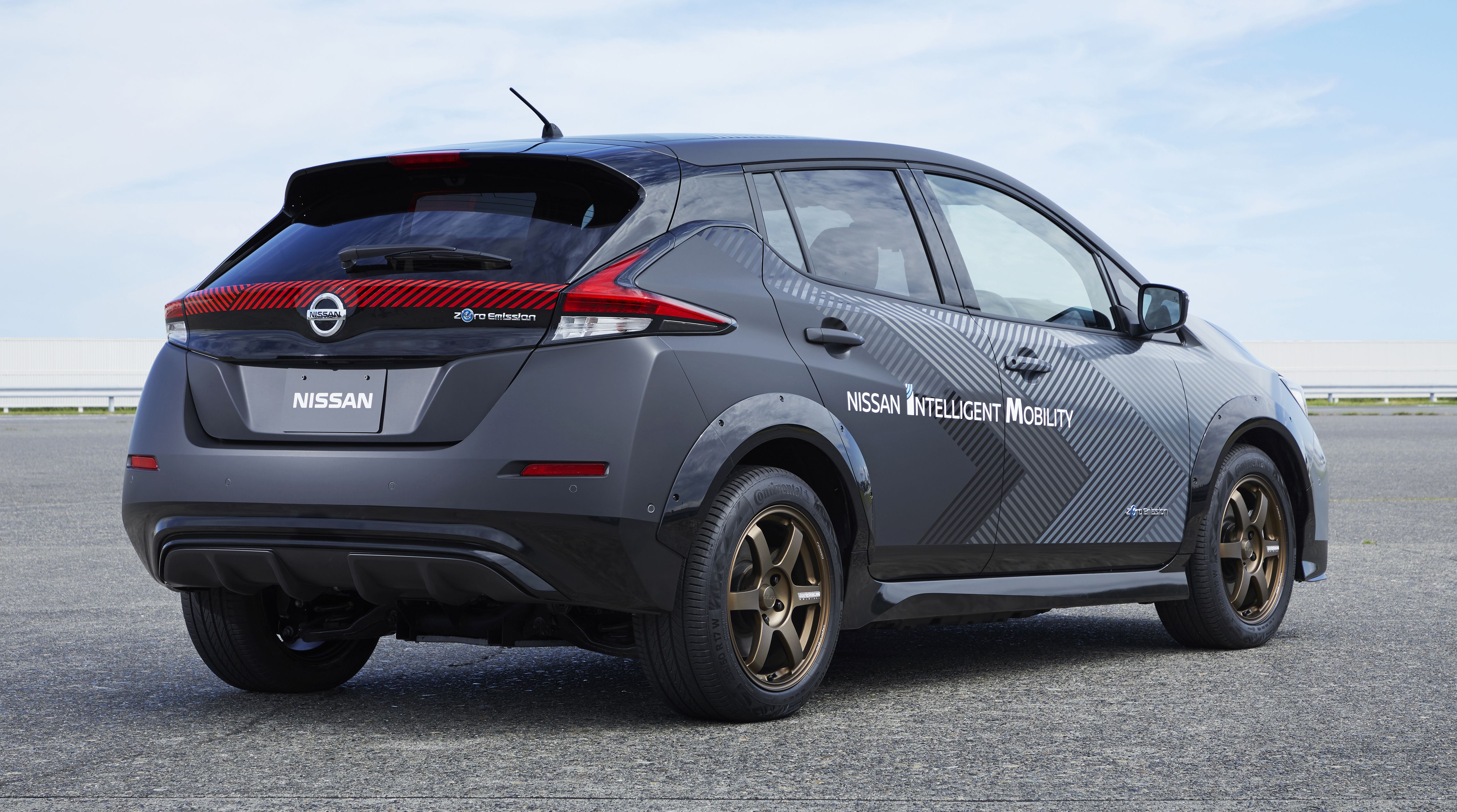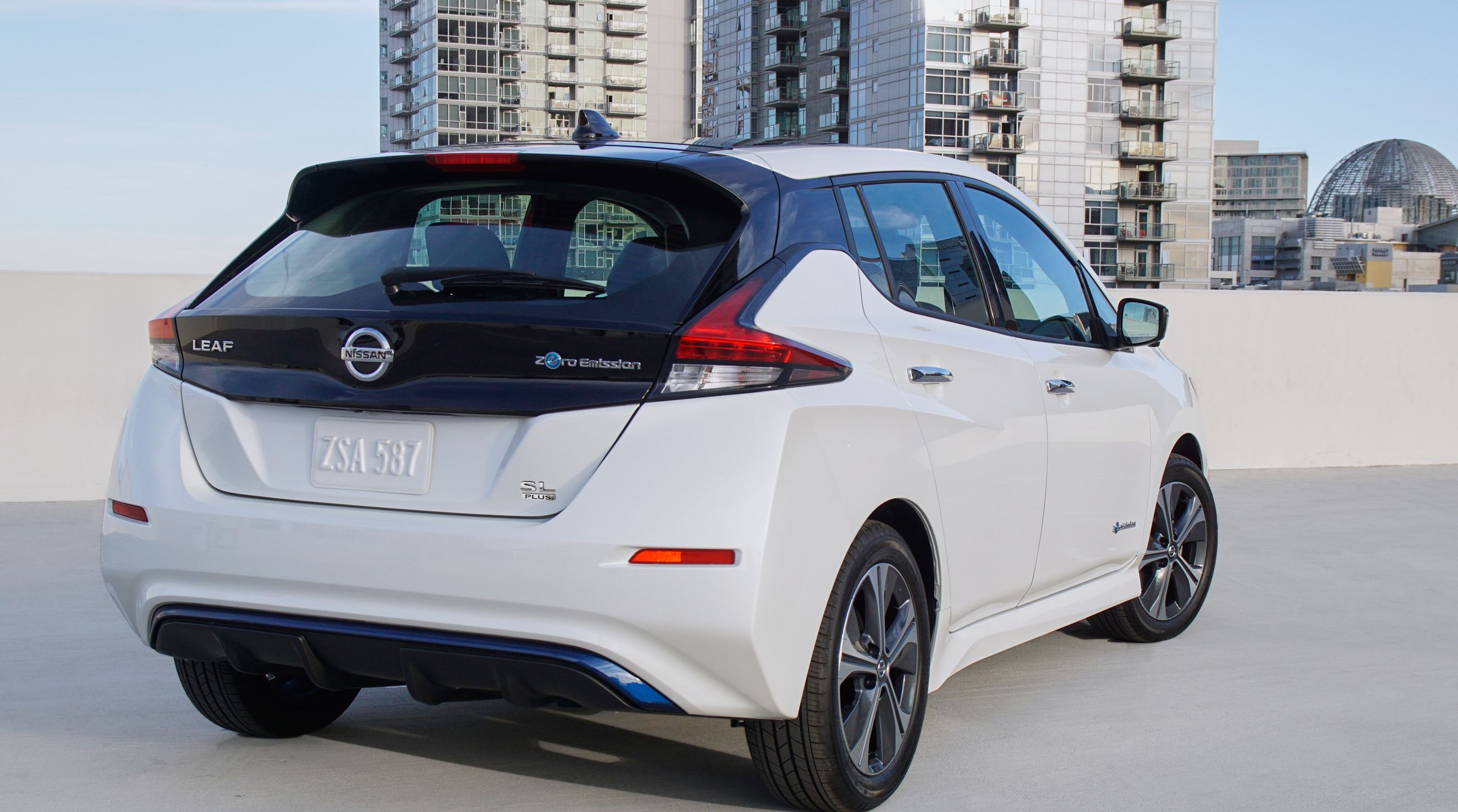The 2019 Nissan Leaf Twin-Motor is an all-electric concept car that features two electric motors and all-wheel-drive capability. It's heavily based on the existing second-generation Nissan Leaf, as it features an identical exterior and a lightly modified interior. Unveiled at the 2019 Tokyo Motor Show, the twin-motor Leaf concept previews a new production car that's already in the works. According to Nissan, this new drivetrain will enable a future EV to "achieve a huge leap in acceleration, cornering and braking performance, on par with the latest sports cars."
2019 Nissan Leaf Twin-Motor Concept
- Make: Array
- Model: 2019 Nissan Leaf Twin-Motor Concept
- [do not use] Vehicle Model: Array
Exterior
|
|
ids=868192,868193 |
no_overlay=false |
before_label=2019 Nissan Leaf Twin-Motor Concept |
after_label=2019 Nissan Leaf> |
The beefed-up Leaf is basically identical to its regular sibling, with just minor changes to the trim visible at first glance. Up front, the only notable change is the blacked-out trim around the closed-off grille. Finished in chrome on the production Leaf, the surround is now black, the same color as the upper bumper inserts. Because Nissan went with a two-tone, black and grey paint job, this tiny detail makes the Leaf looks a tad sportier. The front fascia also benefits from white stripes that look like small wings on the front bumper.
The profile is also identical to the production Nissan Leaf, but this concept features SUV-style arch extensions finished in black. The hatchback also rides on larger, 17-inch wheels finished in a dark shade of gold. The sides also reveal an interesting livery that starts out as gray on the front fenders and transitions towards black in the rear. To help create the transition, Nissan added increasingly darker gray stripes on the front fenders and the doors.
|
|
ids=868195,868196 |
no_overlay=false |
before_label=2019 Nissan Leaf Twin-Motor Concept |
after_label=2019 Nissan Leaf> |
The rear end is a similar story, with an identical design and minor changes. The first thing to noice is the red detailing on the tailgate. The asymmetrical stripes are placed on the center of the tailgate to create the impression that the taillights have a lightbar between them. It's a cool feature to have, although I don't see the point. The second change is the missing bright blue stripe at the top of the diffuser. Now changed to black, it matches the matte dark grey paint for a more menacing look. The diffuser remains identical to the production model.
By far the most interesting modification is also the least visible one. At 176.4 inches long, this Leaf concept is 0.4 inches shorter than the production model. It's also 1.7 inches wider at 72 inches from side mirror to side mirror, and it's also 0.4 inches taller at 60.6 inches. The wheelbase remains the same at 106.3 inches. Nissan didn't say why the concept has different dimensions, but it must have something to do with aerodynamics.
Interior
The twin-motor concept looks identical to the production car inside the cabin, save for two modifications made to the dashboard. Arguably the most important change is the massive 12.3-inch display mounted on the dashboard. This screen provides access to the infotainment system, just like in the regular model, but it also features new menus that enable you to monitor the new drivetrain. Unfortunately, this new display wasn't integrated into the dashboard, but mounted on the old unit, so it looks like a tablet that has been glued to the dash.
The small control panel just underneath the screen was replaced by a new console that features a small display in the center and four buttons at the corners. There's no word as to what it does, but it probably controls the air conditioning system.
Everything else seems unchanged, so it's probably just a small tour de force through which Nissan tells us that its future EV will be packed with state-of-the-art technology.
Drivetrain
Here's where things become a lot more interesting. While the production Leaf features just one electric motor, the concept car is fitted with two. The pair generates 304 horsepower and 502 pound-feet of torque, an impressive increase over the existing Leaf and Leaf+ models. Specifically, it generates an extra 103 horsepower and 252 pound-feet over the Leaf+, currently the most powerful version of the EV. Compared to the base Leaf, it cranks out an extra 157 horses and 266 pound-feet. That's more than double in terms of both horsepower and torque.
Nissan didn't say how big the battery is, but it should have more capacity than the standard 40-kWh and 62-kWh packs.
Because each electric motor is mounted on one axle, this concept also benefits from all-wheel drive. This is a premier for the Leaf and great news for the future of the nameplate. Other details are still under wraps, but Nissan says the concept features regenerative braking and an advanced braking system that can brake each wheel independently. This improves high-speed corners and pretty much enables the Leaf to act like a sports car.
Nissan didn't touch base on the matter, but this new drivetrain should also provide more miles per charge. Thanks to the two-motor layout, this Leaf should be able to return at least 300 miles per charge. That would be a big improvement over both the production Leaf and Leaf+, rated at 150 and 226 miles, respectively. Such a rating would put it above competitors like the Chevrolet Bolt, Kia Niro EV, and even some versions of the Tesla Model 3.
Conclusion
The Nissan Leaf Twin-Motor is the Leaf we all need to have. It's the Leaf that Nissan should have launched when it redesigned the first generation. Fortunately, it's not too late for the Japanese to come up with a sportier EV and a similar car should become available soon. Nissan already confirmed it's working on "a next-generation EV that will be a true breakthrough," so this drivetrain should make it into production sometime in 2020. It remains to be seen whether it will power a new version of the second-gen Leaf or a brand-new electric car.

